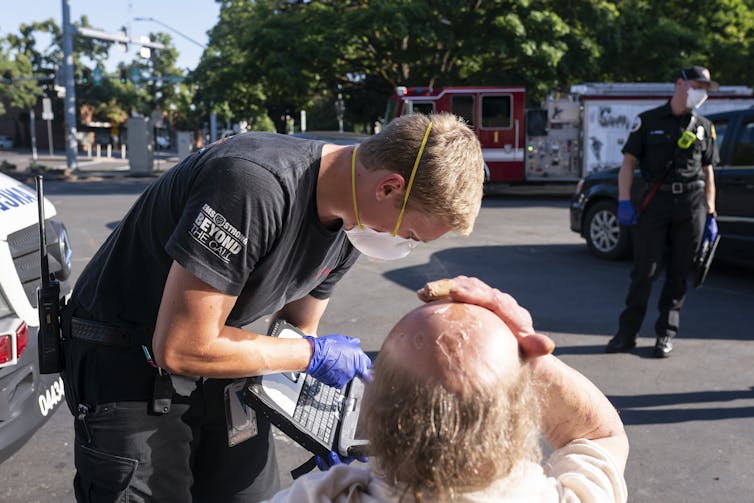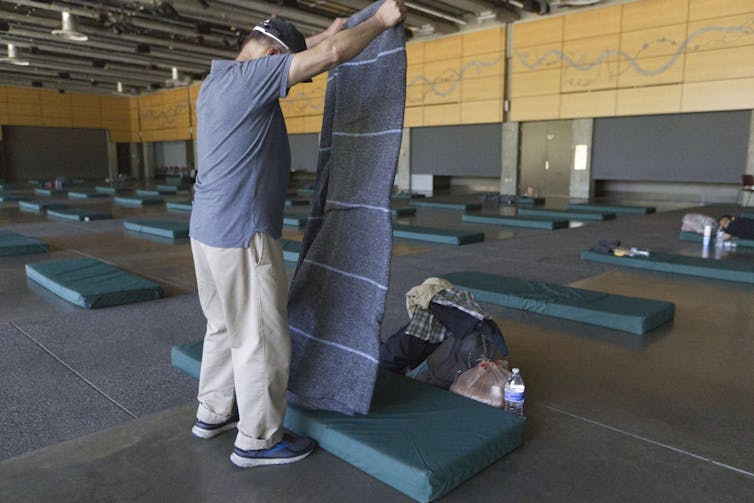Better emergency preparedness can protect older adults from climate change

During last year’s record breaking heat, formal supports like . In Vancouver, for example, an older person had to wait before receiving treatment for heat exhaustion.
Although services and resources like cooling centres, with air-conditioned public spaces were made temporarily available, .
Without warning and with little time for preparation, older adults without access to the internet or electronic devices, community or family support were left to overcome wide-ranging obstacles on their own.
Emergency preparedness
For most people, extreme heat or wildfire smoke may mean a night of tossing and turning and increased indoor time. .
So, how can solutions that consider these folks be implemented?
Emergency preparedness is one step. For example, . And ensuring these resources are accessible to all is critical, but it doesn’t always happen.
Solutions need to account for everyone and establish ways to reduce mobility, language and technological barriers. Increased relevant outreach and transportation to nearby cooling centres could be one way municipalities address these barriers and increase accessibility to necessary resources during a heat wave.

Bolstering emergency services like paramedics and the number of health care professionals . In addition, by providing them they’ll be better able to support and meet the unique needs of older homeless and housing insecure adults during an emergency.
In the long term, city planning can also support the homeless community by that are located near benches, to provide cooler resting areas.
Understanding lived experiences
Beyond these immediate measures, the impacts of extreme climate conditions on older adults should be explored through research to inform policies and programs. More importantly, understanding the .
As researchers working for the Aging in the Right Place Partnership project — which explores housing related practices that support older adults experiencing homelessness — we hope to capture the lived experiences of those facing housing insecurities, as well as advocate and make essential changes in the way research, policy and programs related to housing issues are developed and implemented.
Climate change will continue to impact our communities and serve as a danger to older adults who are experiencing housing insecurities. By connecting and amplifying their voices, we can inform research and policy innovation that focuses on accessible emergency preparedness and safety measures.
Juanita Mora and Emily Lam, undergraduate research assistants, co-authored this article.![]()
, Associate professor, Gerontology Department, ; , Research Assistant, Aging In The Right Place | MA student, ; , Researcher, Aging In the Right Place | M.A. in Gerontology, ����AV, , and , Researcher, Aging In the Right Place | PhD Candidate, Gerontology,
This article is republished from under a Creative Commons license. Read the .

